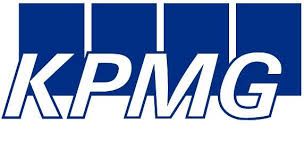This blog was last updated on June 27, 2021
Virtually every business transaction results in an indirect tax consequence – i.e., an intermediary collects taxes that it then must report and pay to the government. In Latin America and other value-added tax based economies, in which tax accrues at every level of the supply chain and manufacturing process, efficient and accurate indirect tax processes are fundamental to ensuring that companies recover all of the tax deductions they are owed and pay taxes accurately. Inaccuracies can trigger audits, fines, penalties and operational shut downs. Yet despite the business implications of this process, a recent KPMG report found that indirect tax functions are lacking in most corporations.
 In a survey of 249 companies headquartered in 24 countries, KPMG found that “indirect tax remains under-resourced, under-measured and under-managed.” In fact, 64% of businesses did not designate a global head of indirect tax, and over half had not identified key indirect tax risks.
In a survey of 249 companies headquartered in 24 countries, KPMG found that “indirect tax remains under-resourced, under-measured and under-managed.” In fact, 64% of businesses did not designate a global head of indirect tax, and over half had not identified key indirect tax risks.
However, as businesses expand their global operations and encounter increasingly complex indirect tax regulatory environments, the implications of indirect tax processes are increasingly evident. 60% of KPMG’s survey respondents reported that indirect tax has a negative impact on cash flow. Manual entry and frequent errors result in missed refunds despite time-consuming internal management. As global governments are increasingly cracking down on inaccurate payments and reporting, the consequences of these errors now go beyond missed deductions. Accuracy is hugely important – as the financial implications now include audits, fines and penalties for inaccurate payments as well.
KPMG notes the multiple ways in which indirect tax impacts businesses at all levels, including:
- Governance, risk and controls
- Big Data
- Content
- Audit
- Complexity in systems and processes
- End-to-end implications
- Cash
Overall, KPMG sums up the importance of indirect tax: “The net VAT payable may not be substantial in itself, but the total amount of VAT tied up in the system (the VAT ‘throughput’) can be a big ‘asset’ and a big risk.” ERP systems aren’t built to handle these changing government compliance dynamics, but the good news is that the solutions and automation available through partners like Sovos are transforming global indirect tax processes, helping to ensure accuracy, create internal efficiencies and reduce risks.
To learn more about how we can help you streamline indirect tax processes, contact us.